When I first spoke last October 10th, I opened with ein milim – no words, there are no words. Of course, words followed, many words, then thousands more have followed since that evening.
This evening, I want to highlight just two words: Courage and Hope.
What does the concept of courage mean to us? I think of our ancestors who bravely set out on unknown journeys towards new beginnings. Goldie’s mother Hinda leaving her Russian home and travelling on a boat to Canada, alone at 13. I think of Lindy’s father Lionel shooting down enemy planes during the ‘48 war. I think of the anusim, the conversos who trudged their way from Spain north, south, east in 1492. So much courage. Lech Lecha. In every generation.
Courage is one of our words. How do we speak up? What do we say? When do we act? What can I do? Courage. The willingness to stand ground, speak up, not hide our faces, not hide our names. You don’t have to like me or agree with me – but you know who I am, unlike those imposters who rage against Jews, covering their face and hiding their name.
One of our challenges over this year has been watching the far too rapid isolation of Israel. We are in danger of Israel becoming a new Pale of Settlement. We must have the courage to not allow Israel to be made a new Pale, a new version of intellectual, creative, artistic, scientific isolation, confinement. We cannot allow academe to limit access for Israelis to publish in academic journals, or to meet with colleagues, we cannot allow artists and theatres, and feckless journalists force Israelis into this Pale. Isolation is emerging far too pervasively, and Israel needs our collective courage. We must speak up, stand up.
And every day we are seeing more and more courage. Family members have woken up to the presence of hatred in their communities; they have found their courage. Everyone here is showing up tonight with courage.
And, as Sarah Mali taught us, we must do the work of hope. In every way we can, every day, we must do hope. Every day the creative chutzpah of our Israeli cousins are doing hope – be it developing pagers for Hezbollah customers or developing David’s Sling, holding weddings on the border of Lebanon or picking tomatoes in the south. Every day we too must do hope. With our words. With our actions. Courage. And Hope. Courage needs hope, and hope demands Courage.
G’mar Chatimah tova.


Vayetze
December 1, 2024 by Rabbi Lynn Greenhough • From the Rabbi's Desk
As I work in my office I often eavesdrop on conversations at the front desk: people new to Victoria being welcomed (Hi, Sharon), old friends whose voices I may recognize, all manner of welcomes that make our home at the JCC feel so right.
Latke Madness begins in December so just a heads up – eau de latke will be in the air as we meet for services! Order your latkes soon – the Deli, per se, is closed over these coming weeks, as everyone cooks and cooks and cooks latkes for all! Lots of Hannukah tchotchkes for sale at the JCC – if you drop by check and see if I am in my office!
This week we begin our week Monday morning with Rosh Chodesh Kislev, the new moon indicating the beginning of the Jewish month of Kislev. Hannukah falls on the 24th of Kislev – this year in conjunction with Christmas Eve/Christmas Day. Here is a link that explains a little more about Kislev and Hannukah –
https://www.myjewishlearning.com/article/kislev-hanukkah/
So let there be much light with this conjunction of celebration and hope.
Rosh Chodesh holds its own special Torah reading, the singing of Hallel. I am so pleased we can now meet on a weekday and mark some of these particular observances. Please spread the word so we can ensure a minyan every week.
With love,
Rabbi Lynn